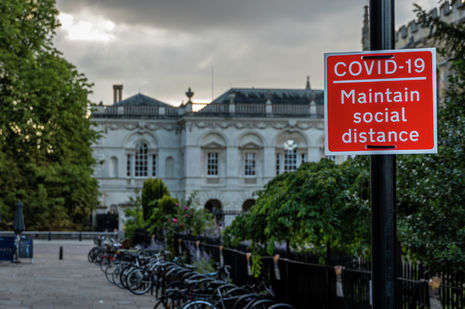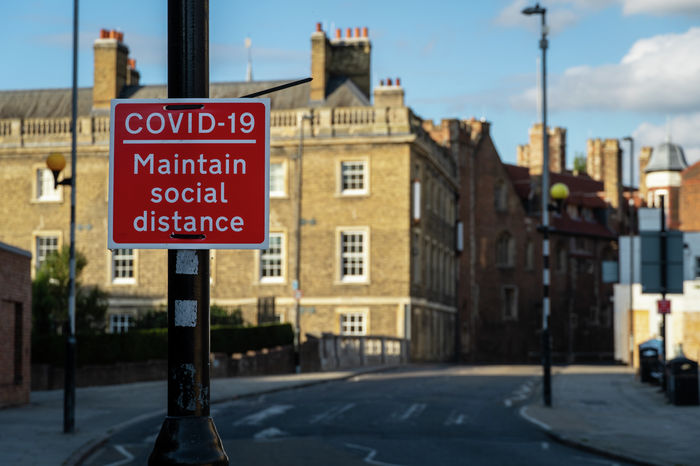Cambridge-led coronavirus genome sequencing effort receives £12.2 million
New funding will allow the consortium to expand capacity and become “better integrated” with the national response to the pandemic.

The Coronavirus Genomics UK (COG-UK) consortium, led by researchers at the University of Cambridge, has received £12.2 million in funding from the Department for Health and Social Care.
The project was set up in March to sequence samples of coronavirus from patients across the UK, and is a partnership between the Government, the NHS, and universities.Sequencing a genome involves determining the series of DNA bases of which it consists.
Over 100,000 SARS-CoV-2 genomes have been generated and published so far, constituting 45% of the global total.
The new funding will be used to increase the number of samples processed and strengthen the consortium’s infrastructure. COG-UK currently sequences 8,000-10,000 samples per week, but researchers hope to double this number over the following months.
Professor Ian Goodfellow, who leads the local Cambridge sequencing team in addition to his position at the Department of Pathology, told Varsity that “there has been tremendous progress”.
“The rapid establishment of a national genomics consortium such as this is a great testament to the UK scientific community and their desire to use their skills to end this pandemic,” he says.
“This funding allows us to expand our capacity and to begin to turn what started life as a research network into a service that is better integrated in the overall UK COVID-19 response,” explained Dr Ewan Harrison, a Senior Research Associate at the Department of Medicine.
The development of rapid and cheap sequencing technologies over the last two decades has made the process significantly more accessible.
Determining viral genome sequences helps in “understanding transmission in hospitals and care homes” where “this has led to improvements in infection control”, according to Harrison.
The genomic databases that COG-UK is constructing also allow researchers to track mutations, including those that could affect resistance to future vaccines.
The samples chosen for sequencing “are selected on various criteria,” notes Goodfellow, and come from three sources. Samples from all “patients currently admitted to any of the Cambridge University Hospitals” are analysed to “monitor hospital outbreaks”. More samples are collected from across the East of England to “get a good representation of viruses that are circulating across the region”.
Harrison adds that COG-UK tries “to capture samples from key studies like vaccine trials” and “from patients with the most severe disease”.
Further to these sources, the local team has recently started including samples collected from students participating in the University’s screening programme. This will help to “understand transmission in the student population”, says Goodfellow.
Although Goodfellow is pleased with the achievements of the consortium, he emphasises that the project is “very labour intensive” and “requires significant expertise”.
He noted that despite technological advances, he “would not want to downplay the challenges with undertaking this work [...] Generating sequences of patient samples on this scale, in this time frame has never been done before”.
Infrastructure created by the COG-UK effort may also “facilitate the formation of a national genomics support service for epidemics other than COVID,” he explained.
The new funding awarded to the consortium comes as England approaches the end of its month-long lockdown. The latest figures from the University show that the number of new asymptomatic cases among University members has fallen to the lowest level since the first week of testing.
 News / Eight Cambridge researchers awarded €17m in ERC research grants27 December 2025
News / Eight Cambridge researchers awarded €17m in ERC research grants27 December 2025 News / Downing investigates ‘mysterious’ underground burial vault 29 December 2025
News / Downing investigates ‘mysterious’ underground burial vault 29 December 2025 Lifestyle / Ask Auntie Alice29 December 2025
Lifestyle / Ask Auntie Alice29 December 2025 Sport / Hard work, heartbreak and hope: international gymnast Maddie Marshall’s journey 29 December 2025
Sport / Hard work, heartbreak and hope: international gymnast Maddie Marshall’s journey 29 December 2025 Interviews / Meet Juan Michel, Cambridge’s multilingual musician29 December 2025
Interviews / Meet Juan Michel, Cambridge’s multilingual musician29 December 2025









